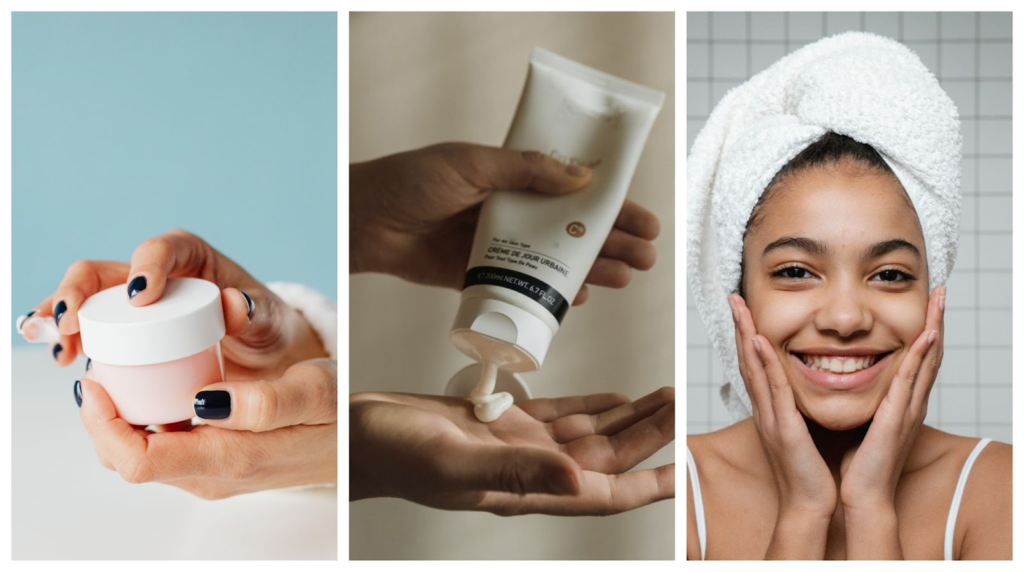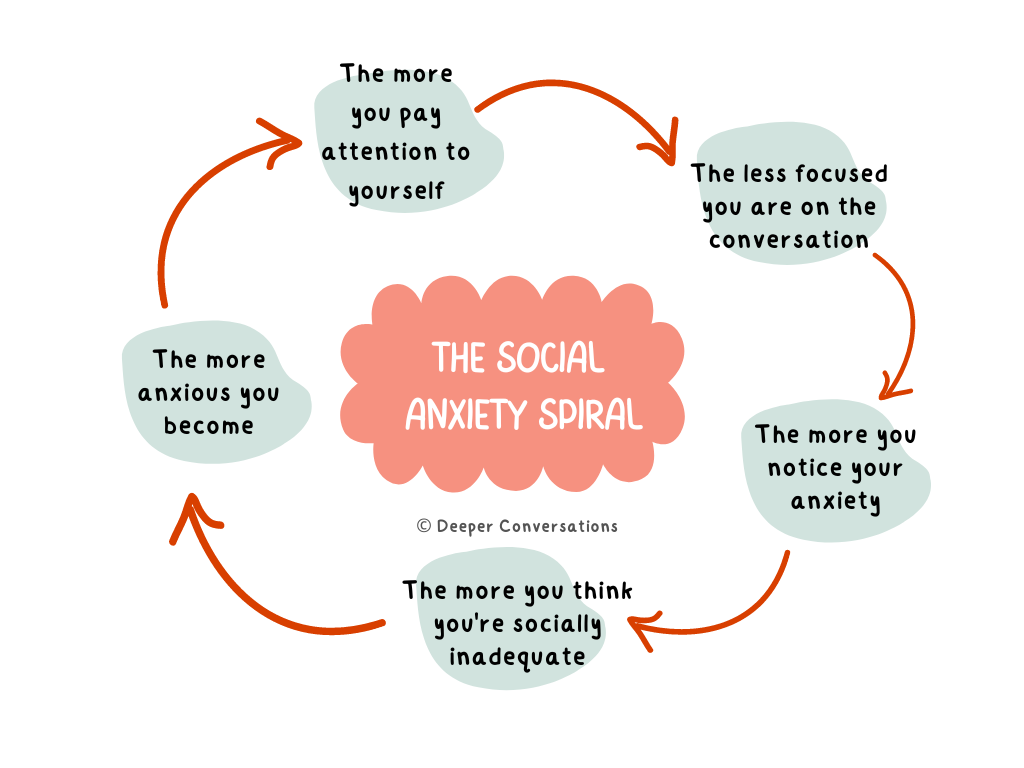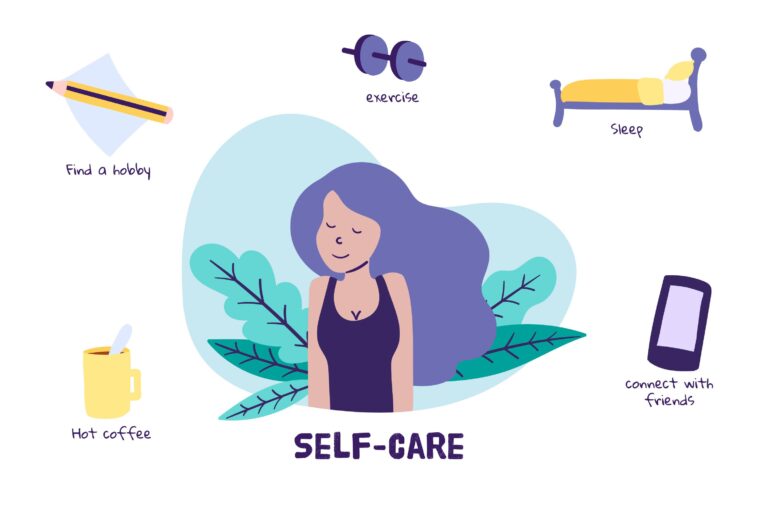Disclaimer: My content is NOT a substitute for professional advice, diagnosis, or treatment. When in doubt, ask a therapist!
Let’s say you have social anxiety — or any other mental health challenge — like I do.
What do you do to work through it?
There’s therapy, which is usually the default solution, and has been proven to work for many people.
But here’s the problem:
There’s an increasing shortage of mental health professionals. Globally, it’s nine for every 100,000 people.
For perspective, imagine that you’re in Camp Nou, the home stadium of FC Barcelona that houses close to 100,000 people.
And let’s say it’s a full house…

You’re given the task to locate the nine therapists in the sea of people. Good luck.
OK, even if you’re lucky to have a therapist, therapy doesn’t go on forever. The number of sessions ranges from 6 to 14.
Self-care, on the other hand, is something you practice for life.
I’ve had social anxiety since young, and while I love therapy, I’ve also come to appreciate the importance of self-care.
But what is self-care, really?
What self-care really is
If you search for the term on Pexels, a royalty-free stock photo site, you will see a lot of skincare product images *eyeroll*.

Now, don’t get me wrong: taking care of your appearance is important and can be healing (this middle-aged, wrinkle-conscious gentleman knows.) But there are many, many other self-care methods out there.
The definitions are pretty telling. Here’s how The National Institute of Mental Health (NIMH) defines self-care:
“taking the time to do things that help you live well and improve both your physical health and mental health.”
APA’s definition is even broader:
“the pursuit of wellness and balance in each of these areas: Emotional, Physical, Relational, Spiritual”
Now as you read this, you might think: “Um, thanks NIMH and APA… but where do I start!?”
Let’s simplify things by introducing one self-care tip per category. (And, I will focus on ones that I felt have been most helpful in managing my social and general anxiety.)
Social: Chat with a loved one
Social anxiety often leads to disconnection and isolation, which makes the anxiety even worse.
To prevent yourself from getting trapped in your anxiety, social support is key: it reminds you that a) you’re not alone b) you’re actually liked by others.
Have a family member/friend’s number on speed dial, or at the top of your messaging app, so that you know who to reach out to in difficult times.
And if you need help improving your relationships with family or friends, I gotchu! Check out the links below:
- 10 family conversation starters for deeper connection
- 50 deep conversation starters with your best or close friend
- Conversation starters to reconnect with an old friend without being awkward
Spiritual: Meditate or pray
Here’s the challenge with social anxiety (or any anxiety, really):
It’s a self-reinforcing loop that keeps you fixated on the difficult emotion. This is what I call the Social Anxiety Spiral:

To get outside your head and focus on something else other than yourself, I recommend giving meditation or prayer a try.
- If you’d like to try meditation, here’s a list of meditation methods for people with social anxiety.
- If you just aren’t into meditation, mindfulness can be a great alternative. Does mindfulness help social anxiety? Yes (here’s how)
Speaking of externalizing your focus, here’s another self-care tip for you…
Physical: Take a walk
Exercise doesn’t have to be a pain in the butt. Start with walking! It’s what our ancestors do all the time.
If you want to get the most mental health benefits, research suggests that you walk in a park. (And if you’re up for a challenge, try talking to strangers as you stroll around!)
But if even walking feels too hard, just focus on getting out of your room for a breath of fresh air. A change in your physical environment, however subtle, can make a difference. Even one step counts:
Emotional: Journal about your social anxiety
“Writing is a way of processing our lives. And it can be a way of healing.”
— Jan Karon
Another way to gain some distance from your anxiety is to write about it. That might not make sense at first — I mean, wouldn’t you be paying even more attention to your anxiety? — but here’s what the research says:
Journaling for as short as 15-20 minutes helps reduce the severity of multiple mental illnesses, whether it’s anxiety or PTSD.
But why does it work though? Journaling provides you a private, judgment-free space to process your anxiety.
Here are a few journaling Qs to get you started (adapted from Goodman’s 2018 study):
- Describe a recent experience where you felt socially anxious.
- What did you feel?
- What thoughts did you have?
- Why do you think you felt socially anxious?
If you need more questions, I recommend this list of kindness conversation starters.
One final note
The self-care tips I shared are the tip of the iceberg. Do your research, experiment with different self-care tips, and see what works best for you!
And, regardless of what you end up trying, here’s one thing I’d like to emphasize…
Self-care should be a habit, not a one-off thing.
Here’s an analogy:
If you want to be financially prepared for emergencies, you’d put aside some money every single month — no matter how tempted you’re to splurge on the latest tech or fashion.
And the same applies to mental health! When you routinize self-care, you’re effectively building up a psychological “emergency fund” that you can tap into during tough times.
Related articles

